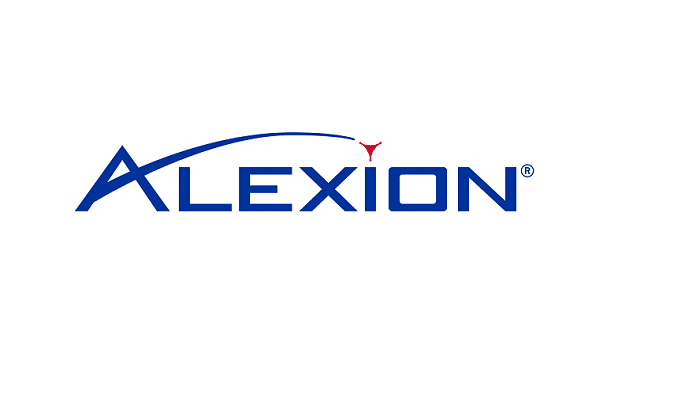Alexion Pharmaceuticals, Inc. announced that the combined interim data from two ongoing open-label studies, VITAL and CL-08, show a 3-year survival estimate of 68% in infants with rapidly progressive lysosomal acid lipase deficiency (LAL-D) treated with Kanuma® (sebelipase alfa).
Of the 19 infants who were enrolled in the studies, 7 infants are surviving and have reached 3 years of age while an additional 6 infants have not yet reached 3 years of age.
These infants also benefited from improvements in a number of key parameters including weight gain and markers of liver disease and function. There were no discontinuations due to adverse events. These data were presented at the WORLDSymposium™ in San Diego and confirm and extend previously published survival data from these studies.cl
“Rapidly progressive LAL-D previously meant a death sentence for most infants diagnosed with this devastating and ultra-rare metabolic disease,” said John Orloff, M.D., Executive Vice President and Global Head of R&D at Alexion. “It is gratifying and humbling to see that many of these infants are surviving into childhood when treated with Kanuma®, while experiencing important improvements in their disease symptoms.”
LAL-D is a chronic and progressive ultra-rare metabolic disease, which can lead to multi-organ damage and premature death.4,5 For infants with rapidly progressive LAL-D, the median age of death is 3.7 months and mortality by 1 year is nearly 100%.6 LAL-D is caused by genetic mutations that result in a deficiency in LAL enzyme activity in the lysosomes, that is vital for the breakdown of lipids. This deficiency leads to the chronic build-up of lipids (cholesteryl esters and triglycerides) in the liver, blood vessel walls, the intestinal system and other organs.4,5Kanuma® replaces the lacking or deficient LAL enzyme and is the only approved therapy to address the underlying cause of LAL-D.
Effect of Kanuma ® on Survival to 3 Years of Age and Liver Function in Infants with Rapidly Progressive Lysosomal Acid Lipase Deficiency: Results from 2 Studies
The current analyses evaluated survival and the clinical profile of infants surviving more than 3 years of age in two ongoing, open-label studies of Kanuma® in infants who presented with signs or symptoms of rapidly progressive LAL-D. Patients in the VITAL study (9 patients), initiated treatment with Kanuma® at a median of 3.0 months of age and received a starting dose of 0.35 mg/kg once-weekly for the first 2 weeks, with dose escalation up to 1, 3 or 5 mg/kg, per protocol. Patients in the CL08 study (10 patients) initiated treatment with Kanuma® at a median of 2.8 months of age and received 1 mg/kg once-weekly with dose escalation up to 3 or 5 mg/kg, per protocol.
In the VITAL study, 6 of 9 patients survived to 12 months of age and in CL08 study, 9 of 10 patients survived to 12 months of age. In both studies, surviving patients had a dose increase to at least 3 mg/kg once-weekly following protocol-defined criteria.
As of August 2017, the oldest patient had been receiving treatment with Kanuma® for more than 6 years and is nearly 7 years old (81 months of age).
For the combined studies, a total of 6 patients died and the causes of each death were considered by investigators to be unrelated to treatment with Kanuma®. In the VITAL study, 4 patients died at 2.8, 2.9, 4.3 and 15 months, respectively. In the CL08 study, one patient died at 4.8 months of age and another at 13.8 months of age.
Combined Clinical Trial Results in Detail:
- Survival: the Kaplan-Meier estimate of survival to 3 years of age was 68% based on the combined data of both studies.
- Weight gain: patients’ median weight-for-age percentile, as measured by percentiles in the World Health Organization (WHO) growth chart of the general population, increased from 3.1 at baseline to 25.1 at week 144 in VITAL; and 0.15 at baseline to 61.7 at week 144 in CL08, indicating substantial clinical improvement in growth in both studies.
- Markers of liver disease and of hematological disease impact:
o A reduction in the concentration of two liver injury markers, alanine aminotransferase (ALT) and aspartate aminotransferase (AST), were observed during the course of the treatment period. Patients treated with sebelipase alfa for 144 weeks experienced changes from Baseline in ALT in the VITAL study (median of 145.0 U/L at Baseline [n=9] to 32.0 U/L at Week 144 [n=5]), and in the CL08 study (median of 37.0 U/L at Baseline [n=9] to 22.5 U/L at Week 144 [n=2]). In VITAL, AST decreased from a median of 125.0 U/L at Baseline (n=9) to 49.5 U/L at Week 144 (n=4). In CL08, AST decreased from a median of 99.5 U/L at Baseline (n=8) to 61.0 U/L at Week 144 (n=2). - Improvements were also observed in liver function, as assessed by serum albumin concentration, and in hematologic parameters (i.e. hemoglobin concentration) during the course of treatment. Patients treated with sebelipase alfa for 144 weeks experienced changes from Baseline in serum albumin in the VITAL study (median of 29.0 g/L at Baseline [n=9] and 34.0 g/L at Week 144 [n=5]) and in the CL08 study (median of 20.0 g/L at Baseline [n=9] and 34 g/L at Week 144 [n=2]), and a change in hemoglobin in the VITAL study (median of 93.0 g/L at Baseline [n=9] and 109.0 g/L at Week 144 [n=5]), and in the CL08 study (median of 90.0 g/L at Baseline [n=7] and 112.0 g/L at Week 144 [n=3]).
All patients experienced one or more treatment emergent adverse events (TEAEs). Seven patients experienced serious adverse events that were considered related to sebelipase alfa; all resolved, and there were no discontinuations due to adverse events.
About Lysosomal Acid Lipase Deficiency (LAL-D)
LAL-D is a genetic, chronic, progressive and potentially life-threatening, yet underdiagnosed, ultra-rare disease associated with significant morbidity and premature mortality.5 In patients with LAL-D, deficient LAL enzyme activity leads to marked accumulation of lipids (cholesteryl esters and triglycerides) in vital organs, blood vessels, and other tissues, resulting in rapid and progressive multi-organ damage including liver fibrosis and cirrhosis, liver failure, accelerated atherosclerosis, cardiovascular disease, and, in some cases, death or other devastating consequences.
LAL-D affects patients of all ages and symptoms may manifest at any time from infancy through adulthood. For LAL-D patients with symptoms presenting in infancy, the median age of death is 3.7 months and mortality by 12 months is nearly 100%.6 For those who develop symptoms as children or adults, approximately 50% progress to liver fibrosis, cirrhosis, or transplant within 3 years.8 Lack of disease awareness of LAL-D has contributed to inadequate testing rates despite the ability to diagnose LAL-D with a simple blood test.9,10
About Kanuma ® (sebelipase alfa)
Kanuma® (sebelipase alfa) is an innovative enzyme replacement therapy that addresses the underlying cause of lysosomal acid lipase deficiency (LAL-D) by replacing the missing vital enzyme and reducing lipid substrate accumulation in the lysosomes of cells throughout the body. In clinical studies, treatment with Kanuma® improved survival in infants with LAL-D and led to normal development. Kanuma treatment in children and adults in clinical studies led to rapid and significant reductions in alanine aminotransferase (ALT) and liver fat content, as well as significant improvements in lipid parameters, which were sustained with long-term treatment. Patients treated with Kanuma® have also shown improvements in liver damage (as measured by Ishak fibrosis stage scores).
Kanuma® is approved in the United States, European Union, Japan, and other countries around the world. For its innovation in treating patients with LAL-D, Kanuma® received the prestigious 2016 German Prix Galien Award in the Orphan Product category.



















